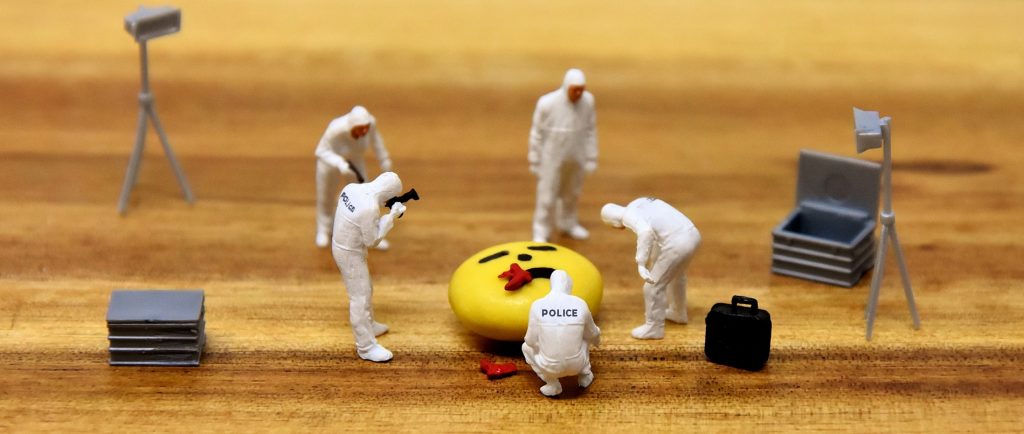
Notice
Updated 5 April 2024 – For Cohorts AY2021/2022 onwards, FSC3101 is not required as an essential course; it is regarded as an elective option. The gateway FSC2101 remains as the only essential course. Please refer to the updated requirements for the Minor in Forensic Science.
Updated 5 April 2024 – HS2916 Love That Kills: A Criminal Justice Perspective is added as an elective option.
The Minor in Forensic Science aims to provide students with an understanding of the fundamental concepts and principles behind the application of scientific techniques to forensic investigations and to the criminal justice system. Advances in basic scientific research have had a rapid and dramatic impact in these fields and it is only through an understanding of these fundamental scientific concepts that the legal system may be effective in criminal investigations. This Minor offers a strong complementary training in criminal justice to students from all disciplines. Undergraduates from all Faculties/Schools are welcome to apply.
To be awarded the Minor, the following requirements (20 units) are to be fulfilled (for Cohorts AY2021/2022 onwards):
Click on the course for its details at NUSMods.
1. Essential Courses – Pass FSC2101 Forensic Science (4 units)
2. Elective Courses – Pass 4 of the following (Total 16 units)
-
- FSC3101 Evidence in Forensic Science
- FSC4201 Articulating Probability and Statistics in Court
- FSC4202 Forensic Human Identification
- FSC4203 Forensic Toxicology and Poisons
- FSC4204 Criminalistics: Evidence and Proof
- FSC4205 Criminalistics: Authenticity, Fraud and Counterfeit
- FSC4206 Advanced Criminal Litigation – Forensics on Trial [5 units]
- FSC4207 Forensic Entomology
- FSC4208 Advanced Forensic Science
- CM/FST/LSM/MA/PC/PR/ST/ZB3288 Advanced UROPS I (forensic science related)
- HS2916 Love That Kills: A Criminal Justice Perspective
- Up to 8 units (i.e., two courses) may be double counted and used to meet (i) the Minor requirement and (ii) another requirement, e.g., General Education (only for students admitted from AY2021/2022 onwards), College (e.g., Common Curriculum), Faculty, Major, Second Major, Minor, Specialisation or other requirement, i.e., at least 12 units of the Minor must be distinct and not overlapping.
Application
This is a restricted Minor and application is open to undergraduate students from all disciplines. Applicants should have passed or are reading FSC2101 and have obtained or expecting a good grade for the course, and preferably a GPA of at least 3.5. Successful entry to the Minor is subject to approval. The application to join the Minor should be made by the start of the fifth semester of the undergraduate candidature. Applications beyond the fifth semester will be considered on a case-by-case basis.
Application is via EduRec. Please refer to the Academic Plan Application/Declaration (APAD) website for more details. There is only one intake each AY at the end of Semester 1, to join at the following Semester 2.
To join the Minor in Semester 2 of AY2024/25, please submit the application when the APAD cycle opens from 15 November to 1 December 2024 (i.e., start of reading week to end of 1st week of examinations). Guide to APAD application available here.
For enquiry on Minor in Forensic Science, you may contact the Programme Coordinator, Assoc Prof Stella Tan dbstwls@nus.edu.sg.
